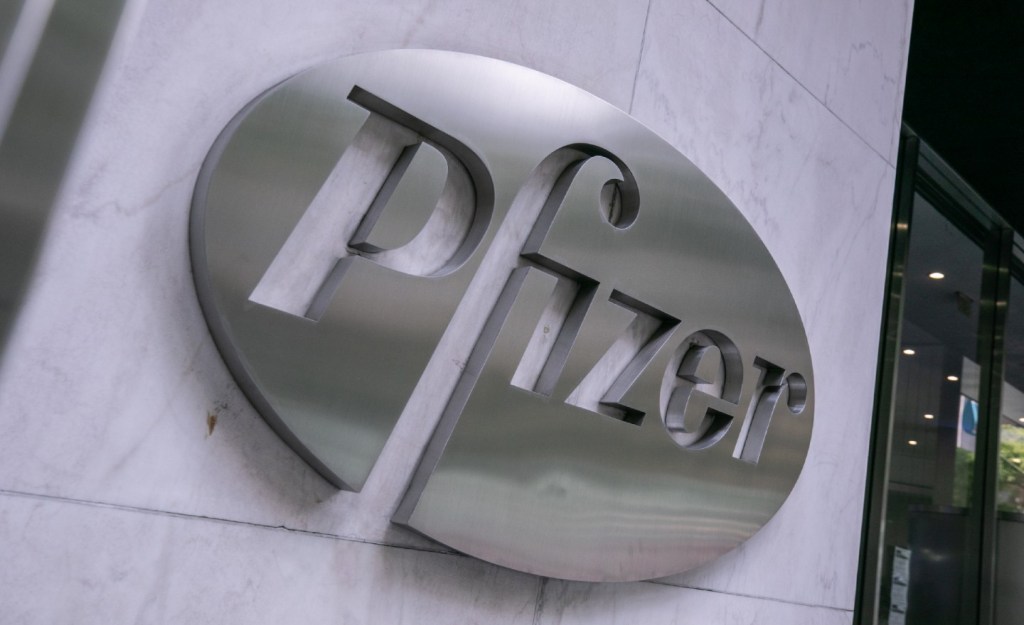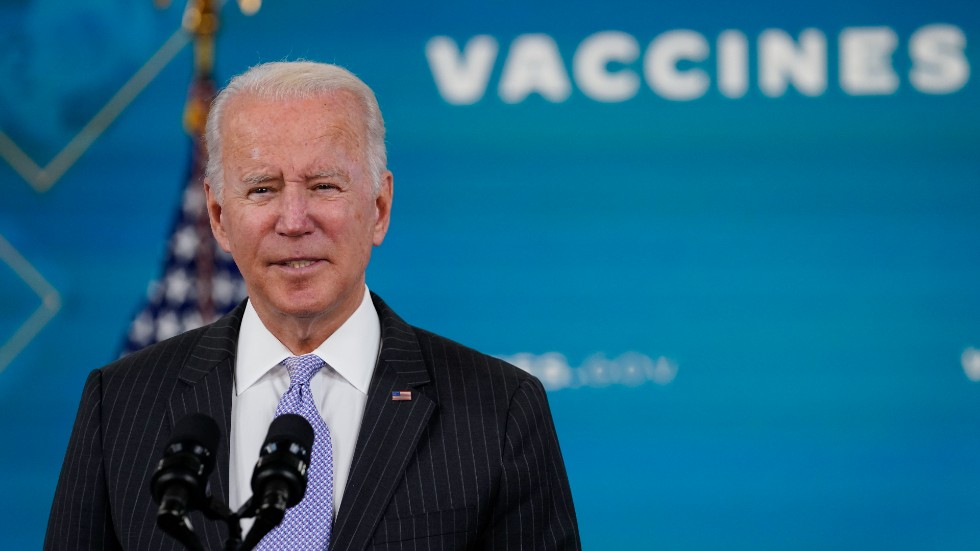Overnight Health Care — COVID-19 pills are coming
Welcome to Friday’s Overnight Health Care, where we’re following the latest moves on policy and news affecting your health. Subscribe here: digital-staging.thehill.com/newsletter-signup.
A photojournalist captured a unique police chase as a runaway potbellied pig attempted to evade police in Pensacola, Fla. for about an hour before she was “finally wrangled.”
Pfizer has a COVID-19 treatment pill, in what could be another major turning point in the fight against the virus.
For The Hill, we’re Peter Sullivan (psullivan@digital-staging.thehill.com), Nathaniel Weixel (nweixel@digital-staging.thehill.com) and Justine Coleman (jcoleman@digital-staging.thehill.com). Write to us with tips and feedback, and follow us on Twitter: @PeterSullivan4, @NateWeixel and @JustineColeman8.
Let’s get started.
Pfizer touts antiviral pill results

Pfizer announced on Friday that its experimental antiviral COVID-19 pill cut the risk of coronavirus hospitalizations and deaths by 89 percent compared to those who received a placebo, according to an analysis of study data.
In a study examining adults who had contracted COVID-19 and were considered at high risk of becoming severely ill, the pharmaceutical company reported that out of 389 people who received the drug, 3 (0.8 percent) were hospitalized, but did not die.
The drug is taken as part of a five day regimen —a combination of three pills, taken twice a day— within three days of symptoms beginning.
Pfizer said that the study data would be submitted to the Food and Drug Administration (FDA) as soon as possible, which would be included in its emergency use authorization request for the drug.
The results were so strong that the independent committee monitoring the trial recommended ending it early.
“Today’s news is a real game-changer in the global efforts to halt the devastation of this pandemic. These data suggest that our oral antiviral candidate, if approved or authorized by regulatory authorities, has the potential to save patients’ lives, reduce the severity of COVID-19 infections, and eliminate up to nine out of ten hospitalizations,” Pfizer CEO and Chairman Albert Bourla said in a statement.
Significance: Pills that can reduce the severity of a COVID-19 infection could be a game changer in the arsenal of tools helping to manage the pandemic. They aren’t meant to replace vaccines, which remain the best way to get protected against severe infection, but could augment them.
Drug company Merck has also developed its own antiviral COVID-19 pill, named molnupiravir, which has also been shown to be effective at curbing COVID-19 hospitalizations. An FDA panel is set to examine the evidence for authorization later this month.
END IN SIGHT? GOTTLIEB SAYS PANDEMIC COULD BE OVER IN US BY JANUARY
Former Food and Drug Administration Commissioner Scott Gottlieb said Friday that he thinks the COVID-19 pandemic in the United States could be over by January, transitioning to a lower-level “endemic” presence.
“I think the bottom line though is that these mandates that are going to be put in place by Jan. 4 really are coming on the tail end of this pandemic,” Gottlieb said on CNBC, referring to President Biden’s deadline for a vaccine or test mandate for businesses with at least 100 employees. “By Jan. 4 this pandemic may well be over at least as it relates to the United States after we get through this delta wave of infection. And we’ll be in more of an endemic phase of this virus.”
It’s not totally going away: The coronavirus is not expected to disappear entirely, but it could settle into a lower-level, constant presence that does not cause the disruption and harm of the past year and a half.
New treatments: In addition to vaccines, Gottlieb, who is on the board of Pfizer, also pointed to results from new treatments, including a pill from Pfizer that the company said Friday was found to reduce the risk of hospitalization or death from COVID-19 by 89 percent.
“Once we get through this delta wave of infection over the course of the next two months, I think that this therapeutic and the other innovations that we’ve seen coming to market really mark the end of the pandemic in the United States,” Gottlieb said. “We need to think about how we put that victory sign on the side of the White House.”
26 states push back on Biden vaccine rules

More than two dozen states are balking against the Biden administration’s coronavirus vaccine-or-test mandate for businesses that have at least 100 employees, setting up the latest legal challenge between Republicans and the White House.
Several coalitions — which include 25 attorneys general and one solicitor general — filed petitions with federal appeals courts asking for the mandate to be blocked.
One group, led by Missouri Attorney General Eric Schmitt and including 10 others, filed a lawsuit in the 8th Circuit Court of Appeals, claiming that the requirement is “unconstitutional, unlawful, and unwise.”
The lawsuit alleges that the Biden administration did not have the constitutional authority to implement the mandate which “unconstitutionally infringes on the States’ powers.”
“Its unlawful mandate will cause injuries and hardship to working families, inflict economic disruption and staffing shortages on the States and private employers, and impose even greater strains on struggling labor markets and supply chains,” the attorneys general allege in the lawsuit, which requested that the court stay the requirement pending review.
Another challenge: A separate coalition of Republican attorneys general also filed a petition with the 6th Circuit Court of Appeals, also arguing that OSHA has neither the constitutional or statutory authority to implement the rule.
“OSHA’s vaccination mandate represents a real threat to individual liberty,” West Virginia Attorney General Patrick Morrisey said in a statement on Friday. “As we have seen throughout the country, it is also a public policy disaster that displaces vulnerable workers and exacerbates a nationwide shortage of front-line workers, with severe consequences for all Americans.”
DEMOCRATIC GOVERNOR COMES OUT AGAINST VACCINE MANDATE
Kansas Gov. Laura Kelly, a Democrat, said she doesn’t think having a coronavirus vaccine mandate is the “correct” or “most effective” move.
Kelly, who is up for reelection next year, said she appreciates “the intention to keep people safe” but doesn’t think the administration’s vaccinate-or-test requirements serve as a “solution for Kansas.”
“It is too late to impose a federal standard now that we have already developed systems and strategies that are tailored for our specific needs,” she said.
Her disapproval of the administration’s move comes as many Republican governors and attorneys general have voiced their opposition to the vaccine-or-test requirements for businesses.
The administration predicts the latest federal mandate will save thousands of lives and prevent more than 250,000 hospitalizations in its first six months. Kansas has seen more than 6,400 COVID-19 deaths and beyond 15,000 hospitalizations throughout the pandemic.
Kansas is ranked in the middle of the pack for its vaccination rate, with the state government reporting 53.7 percent of the total population have gotten at least one dose, while less than half are fully vaccinated.
HHS parts ways with Emergent

A contract between the Biden administration and Emergent BioSolutions, a vaccine contractor who has struggled with production failures during the pandemic, has been canceled.
Emergent unveiled in its earnings report that the Department of Health and Human Services and the company ended the $650 million contract in a “mutual agreement.”
The company said they had agreed to forego about $180 million of the contract’s $650 million total.
Flashback: The contract was signed at the beginning of the pandemic in 2020 under the Trump administration’s Operation Warp Speed, but the administration stopped payments after the spring of this year when issues at the company’s Maryland plant were disclosed.
This past spring, the plant was forced to destroy the equivalent of tens of millions of doses of Johnson & Johnson’s coronavirus vaccine because of suspected contamination with an ingredient for the AstraZeneca vaccine.
Production was halted by the Food and Drug Administration after the contamination, delaying the rollout of J&J’s vaccine. The plant was eventually allowed to reopen after an inspection in August.
Emergent executive: In an op-ed for The Baltimore Sun, Kramer directed blame for the failures of the contracts toward the government.
“The original intent of this partnership was to create a facility that could produce 50 million dose-equivalents of influenza vaccine drug substance in four months in the event of a pandemic,” Kramer said. “Facility expansion was only a first step. To build and maintain a state of readiness, continued investment is a necessity. The government maintained that they would provide us with the necessary drug development work to build and maintain those capabilities. That didn’t happen.”
WHAT WE’RE READING
- Health insurers still aren’t that worried about the coronavirus (Axios)
- Vaccine refusals in intelligence agencies raise GOP concerns (The Associated Press)
- COVID-vaccine mandates for kids are coming (The Atlantic)
STATE BY STATE
- Kansas state mental health hospitals reach ‘crisis level’ with low staffing, capacity (The Kansas City Star)
- COVID infection rates slowing among kids in Washington state, but new reports show they’re still at record highs (The Seattle Times)
- Fewer than 100 ICU beds available across Colorado as COVID hospitalizations keep rising (The Denver Post)
That’s it for today, thanks for reading. Check out The Hill’s health care page for the latest news and coverage. See you Monday.
Copyright 2024 Nexstar Media Inc. All rights reserved. This material may not be published, broadcast, rewritten, or redistributed..

















